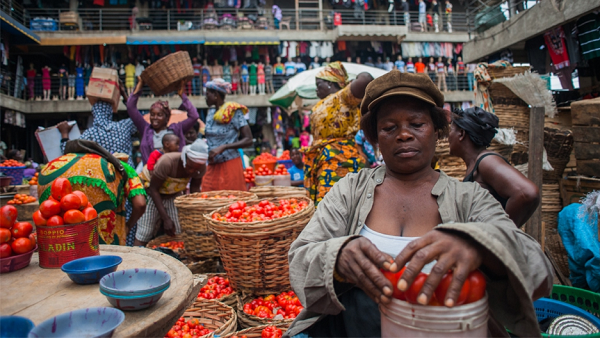Traders don’t trust the current situation – KNUST lecturer explains price standoff

Despite recent gains by the Ghanaian cedi against major foreign currencies, many traders remain unwilling to adjust their prices downward—a situation that has drawn attention and sparked debate.
Dr. Owoahene Acheampong, a lecturer at the Kwame Nkrumah University of Science and Technology (KNUST), has offered a compelling explanation for this reluctance, pointing to a crisis of confidence in government economic management.
According to him, the ongoing skepticism among traders is rooted in their doubts about the sustainability of the cedi’s rebound.
“The current appreciation of the cedi is seen by many traders as cosmetic or artificial,” Dr. Acheampong said. “It should have been a natural occurrence for traders to reduce prices, but because they don’t trust the current situation, they’ve decided to monitor it for 60 days first.”
His comments come in the wake of a high-level engagement between the Minister of Trade and Industry and the leadership of the Ghana Union of Traders Association (GUTA).
The meeting concluded with a mutual understanding that prices will be reviewed after 60 days if the cedi maintains its current strength.
The cedi has recently shown signs of recovery, gaining marginal ground against the US dollar after months of sharp depreciation that drove inflation and contributed to surging prices of goods and services.
The Bank of Ghana’s tightened monetary policy, improved foreign exchange inflows, and the IMF programme have been cited as key drivers of the currency’s recent performance.
However, Dr. Acheampong suggests that these improvements are being met with caution rather than celebration.
Traders, he noted, are weary of what they perceive as short-lived gains—an attitude shaped by years of currency volatility and inconsistent policy signals.
“They are skeptical about whether this exchange rate stability will hold. If they reduce prices now and the cedi depreciates again, they could suffer huge losses,” he explained on Wontumi Radio.
This mistrust, he argues, underscores a broader challenge: restoring long-term confidence in Ghana’s economic direction.



